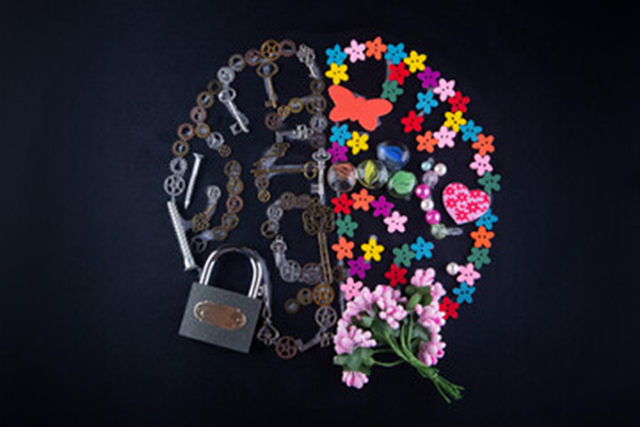You are here
Narcissism
By Rania Sa’adi , Family Flavours - May 18,2025 - Last updated at May 18,2025

Photo courtesy of Family Flavours magazine
By Rania Sa’adi
Rapid Transformational Therapist & Clinical Hypnotherapist
At its extreme, narcissism can be classified as Narcissistic Personality Disorder (NPD), a condition that negatively affects both the individual and those around them.
Understanding Narcissism Narcissism is not just about arrogance or selfimportance — it is not simply a personality flaw but a deep-rooted psychological wound that stems from early childhood experiences.
It is a mask covering up deep insecurities and unmet emotional needs. Most narcissists experienced childhood neglect, emotional abandonment, or an environment where love was conditional.
They may have been excessively praised for achievements, but not valued for who they are, leading
to an internal belief that they must constantly prove their worth.
Many narcissists have a core belief of “I am not enough.”
To compensate, they develop a grandiose self-image to seek external validation.
Their behaviour, whether manipulative, controlling, or dismissive of others, is a defence mechanism designed to protect them from facing deep-rooted feelings of unworthiness.
In a Relationship with A Narcissist One of the most significant impacts of narcissism is on relationships. Narcissists often struggle with forming genuine, emotionally fulfilling connections because they lack the ability to truly empathise.
They view relationships primarily as a way to gain admiration, validation, or control, rather than as mutual partnerships based on reciprocity.
People in relationships with narcissists, whether romantic partners, family members, or colleagues, often experience emotional exhaustion, self-doubt and a loss of self-worth.
The narcissist’s constant need for attention and their inability to handle criticism can create a toxic cycle where the other person is gaslighted into questioning their abilities.
People who attract narcissistic partners often have their own unresolved childhood wounds. Many have grown up in environments where love was inconsistent, making them subconsciously drawn to relationships that feel familiar.
RTT helps individuals recognize these patterns and reprogramme their subconscious beliefs to establish healthier relationships, and attract more balanced partners.
“They view relationships primarily as a way to gain admiration, validation, or control, rather than as mutual partnerships based on reciprocity.”
The Impact of Narcissism on Mental Health
The effects of narcissistic relationships extend beyond emotional distress; they can significantly impact mental health.
Victims often experience anxiety, depression, and even symptoms of PTSD due to prolonged exposure to manipulation and emotional abuse.
The narcissist’s behaviour can lead the victim to continuous self-doubt and a diminished sense of self-worth.
Healing from narcissistic abuse involves understanding that the narcissist’s behavior is not about the victim but rather a reflection of their own deep insecurities.
By uncovering the subconscious beliefs that make individuals susceptible to toxic relationships and replacing them with empowering beliefs.
Can a Narcissist Change?
One of the most debated questions is whether a narcissist can change. I believe that transformation is possible, but only if the narcissist recognises their own pain and takes responsibility for healing.
Since narcissists often resist acknowledging that they need help, change is rare unless they actively seek therapy and commit to self-awareness.
RTT can help narcissists by uncovering the root of their insecurities and reframing their core beliefs. However, because most narcissists lack the self-reflection necessary for change, therapy is often more beneficial for those who have been affected by them.
Healing and Moving Forward
Those recovering from narcissistic relationships, should advocate for self-love, boundary-setting, and rewiring subconscious beliefs.
Victims of a narcissistic relationship need to rebuild their self-worth and create a mindset that no longer attracts or tolerates narcissistic behaviour. The key to healing is recognising that true love and validation come from within, not from external approval.
By shifting their mindset, individuals can break free from toxic cycles and develop healthier, more fulfilling relationships. A mantra that says “I am enough,” that can help empower people, so that they can truly step into a life of emotional freedom.
Reprinted with permission from Family Flavours magazine
Related Articles
In the intricate tapestry of human relationships, men often find themselves navigating through a maze of societal expectations. From short romances to lifelong partnerships, the dynamics of men’s relationships exhibit an array of patterns, some conventional, others peculiar.
By Rania Sa’adiLicensed Rapid Transformational Therapist and Clinical Hypnotherapist Do you feel stuck in life and wish to make a posit
(OCD) manifests differently for each individual Common obsessions include fears of contamination, doubts about safety or orderliness and intrusive thoughts of harm coming to oneself or others.














